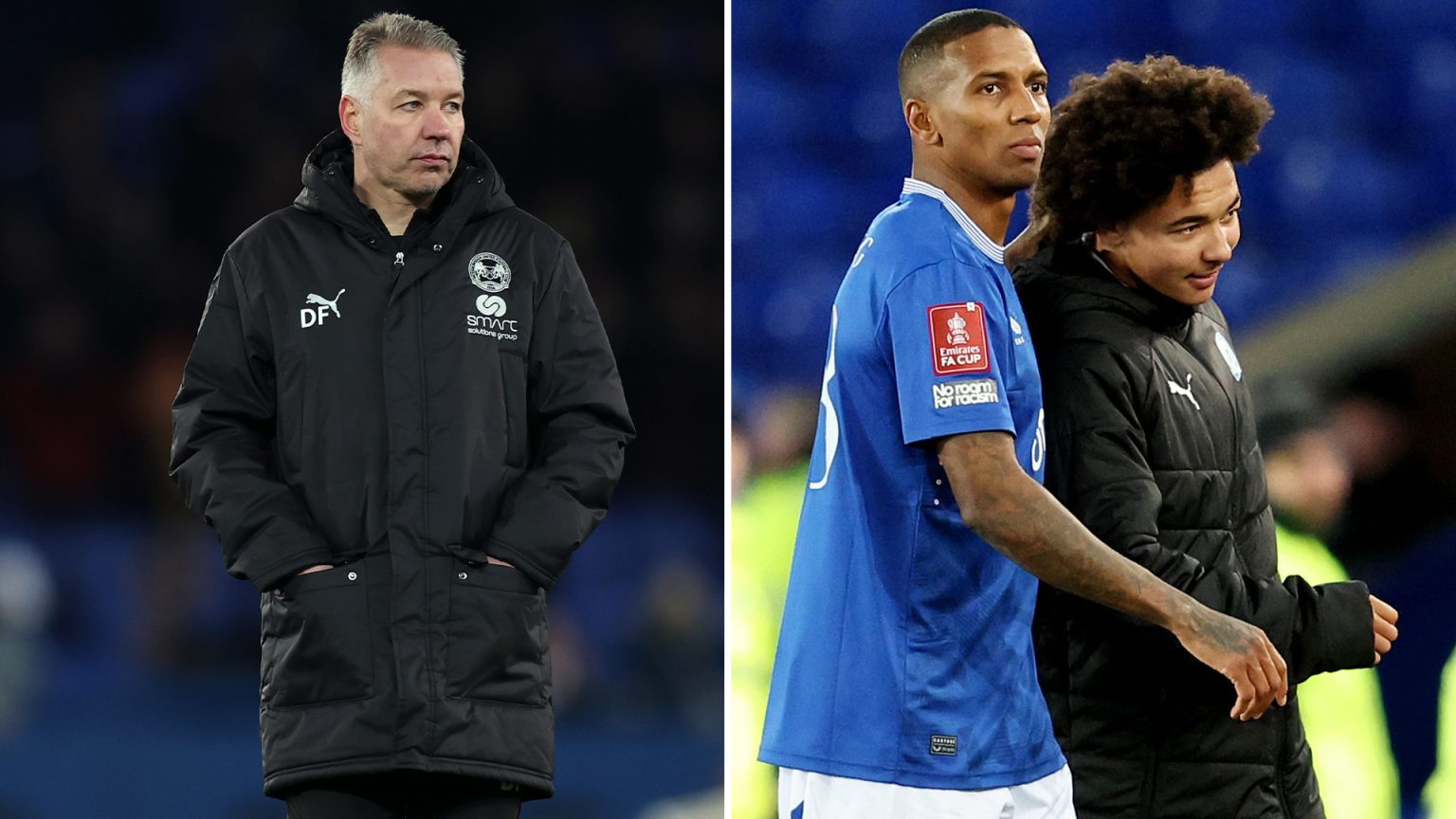Darren Ferguson, son of legendary Manchester United manager Sir Alex Ferguson, found himself at the center of a minor controversy following his Peterborough United side’s FA Cup exit at the hands of Everton. The focal point of the post-match discussion wasn’t the 2-0 defeat itself, but rather Ferguson’s decision to leave 18-year-old Tyler Young, son of Everton veteran Ashley Young, on the bench. This decision meant a historic father-son face-off in the FA Cup, a scenario never before witnessed in the competition’s 154-year history, failed to materialize. Ferguson robustly defended his choice, emphasizing his responsibility to prioritize the team’s needs over sentimental narratives.
Ferguson’s explanation centered on the tactical demands of the game. With Peterborough trailing 1-0, he felt compelled to introduce attacking players in an attempt to salvage the tie, rather than bring on Young, whose limited experience made him a less suitable option in the circumstances. He pointed out that had the scoreline been 2-0, implying a less precarious situation for his team, he would have considered giving Young some playing time. This pragmatic approach, Ferguson argued, was essential for a manager striving to extract the best possible outcome for his team.
Adding fuel to the fire, Ferguson revealed that an unnamed Everton player criticized him for not fielding Young. He deemed this criticism unwarranted and inappropriate, emphasizing that Peterborough United wasn’t a “charity case” and that team selection should be based on merit and tactical considerations, not sentimental pleas. This pointed response highlighted Ferguson’s resolve to stand by his decisions, even under pressure from opposing players.
The pre-match build-up had focused on the potential encounter between Tyler Young and his father, Ashley. Although Tyler had made only one prior professional appearance as a substitute in an EFL Trophy match, the prospect of a father and son competing against each other in the prestigious FA Cup had captured the imagination of fans and media alike. However, this tantalizing narrative ultimately remained unrealized.
Meanwhile, Everton’s own pre-match preparations were overshadowed by the unexpected dismissal of manager Sean Dyche. This sudden change in leadership saw club stalwarts Seamus Coleman and Leighton Baines take temporary charge of the team for the FA Cup tie against Peterborough. Their interim management stint included dealing with a concerning injury to striker Armando Broja, who was stretchered off after an awkward landing.
In the aftermath of Dyche’s sacking, speculation immediately arose regarding his successor. David Moyes, a former Everton manager, emerged as an early favorite, followed by Jose Mourinho, whose storied managerial career included successful spells at Chelsea, Inter Milan, and Real Madrid. Other contenders linked to the vacancy included Lee Carsley, Leighton Baines himself, Thomas Frank, Paulo Fonseca, Rob Edwards, Steve Cooper, Edin Terzic, and David Wagner. The race to fill the managerial void at Everton promised to be a closely watched affair.


